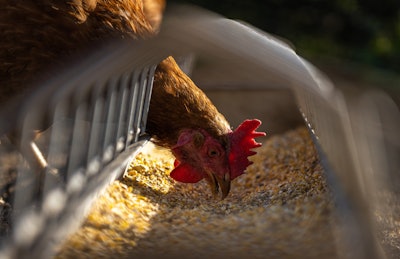
Over the past 50 years, change in the poultry industry has been driven by improved performance through increased average live weight and improved feed conversion. Genetics, nutrition, management and feed additives have contributed to a rise in the end weight of male broiler chickens from less than 2 kg at 10 weeks in 1960 to over 3 kg in six weeks achieved in today’s growth cycle.
Consumer demand for “natural products” may fundamentally change the way integrated poultry companies do business. Broiler production may have to be segmented to address the different consumer choices, regional characteristics and regulatory constraints.
Sub-therapeutic antibiotics were standard additives in animal feed for over 50 years. Several developments have led to their ban in Europe and a removal trend the world over, including:
■ Research suggesting they could cause microbial resistance to therapeutic drugs in humans
■ Residues detected in edible meat
■ Misuse in production
Ongoing research examines technically feasible and economically efficient alternatives to antibiotic growth promoters (AGPs), and polyphenol-rich botanical extracts show exciting results. With over 8,000 molecules identified in this class, however, validation of the efficacy of specific compounds is paramount.
Polyphenols are ubiquitous. They are a class of natural compounds present in all vascular plants. Sources of polyphenols include tea, grapes, olives, coffee, chocolate and peanuts, among many other botanicals.
For the last 10 years, researchers have published numerous papers on the use of polyphenols in animal nutrition and health, many of those reporting their use as AGP replacement. This growing body of evidence, revealing the potential benefits of polyphenols in broiler nutrition, will offer nutritionists natural alternatives to AGPs on animal welfare, consumer demand and regulatory constraints.
In addition, some botanical extracts may help the operator overcome some poultry production challenges. Hypotheses published very recently places metabolic oxidation as one of the root causes of wooden breast, a myopathy that reduces the value of the most expensive broiler cuts. Polyphenols are powerful antioxidants that may contribute to alleviating this problem, providing yet one more benefit to integrated broiler companies going natural. ■
About the Author
Juan Javierreis nutrition scientist at Layn Natural Ingredients. He is a doctor of veterinary medicine, as well as a nutritionist and researcher. Javierre has over 30 years ofexperience in animal production in Europe, the Americas, Southeast Asia and China. For more information, email Javierre at[email protected]or visitlayncorp.com.




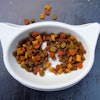
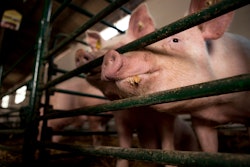
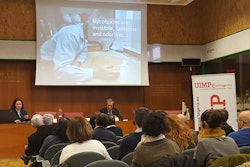

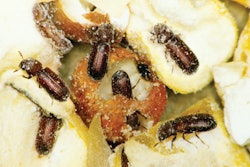







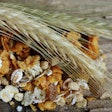

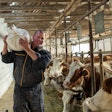


![Optimix Andritz Scaled[1]](https://img.feedandgrain.com/files/base/wattglobalmedia/all/image/2023/05/optimix_Andritz_scaled_1_.645eb7a1ed508.png?auto=format%2Ccompress&fit=crop&h=112&q=70&w=112)